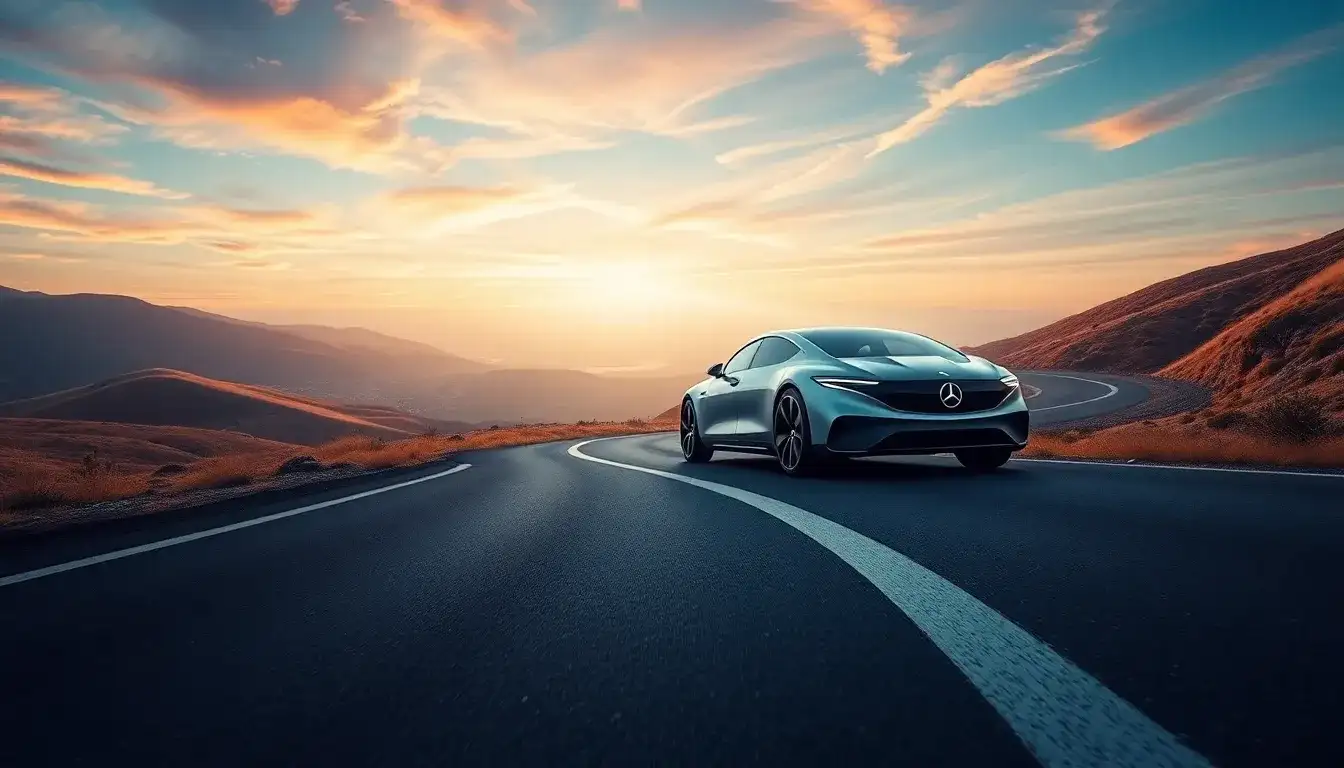Mercedes-Benz Achieves Milestone with Successful Solid-State Battery Test, Exceeding 1000 Kilometers Without Refill
On February 24, 2025, the automotive industry, particularly in the realm of electric vehicles, was abuzz with excitement following Mercedes-Benz’s announcement regarding their latest advancements. With the support of their Formula 1 division, Mercedes AMG High Performance Powertrains (HPP), the company has successfully tested a solid-state battery in a modified EQS model. This is not merely an upgrade; it represents a significant leap towards the future of electric mobility, placing Mercedes ahead of several competitors also working on similar battery technologies.
Imagine a vehicle that is safer, lighter, and more efficient, capable of traveling 25 percent further than its predecessors. This is the promise offered by the solid-state battery developed by Mercedes-Benz in collaboration with Factory Energy, a leading solid battery technology firm based in the United States.
The global release from the manufacturer on February 24 marked the beginning of real-world testing, which commenced in February 2025. The specially modified EQS model was equipped to assess the capabilities of this groundbreaking battery technology under actual driving conditions. This achievement stands out due to the interdisciplinary collaboration between passenger car engineers and Formula 1 technology experts from HPP.
“We combine the best expertise from highways and racetracks to accelerate the development of innovative and sustainable solid batteries,” stated Mercedes-Benz CTO Markus Schwayfer. HPP, known for its pioneering Formula 1 technology, played a crucial role in designing and developing this entirely new solid battery system. The precision and rapid pace characteristic of F1 have been integrated into the battery development process, leading to faster and more efficient outcomes.
Solid batteries utilize solid electrolytes instead of liquids, significantly enhancing cell safety and allowing for the use of new anodes, such as lithium metal. This innovation results in a much higher energy density—up to 450 Wh/kg at the cell level—lighter battery weights, and performance that outstrips conventional lithium-ion batteries.
“This is a historic achievement. The integration of lithium metal solid batteries into production vehicle platforms demonstrates that this technology has moved beyond the laboratory and is ready for real-world applications,” remarked Factory Energy CEO Siyu Huang.
EQS Breaks Barriers: The 1000 KM Dream Realized
The results from this technology are remarkable. The modified EQS, equipped with a solid battery, can travel up to 25 percent further than the standard EQS battery of the same size and weight. Thanks to an innovative passive battery cooling system that boosts energy efficiency, this test vehicle is projected to cover distances exceeding 1,000 kilometers.
For context, the current EQS 450+, with a battery capacity of 118 kWh, can already achieve over 800 kilometers on a single charge. With the introduction of the solid battery, Mercedes-Benz is poised to redefine these limits.
In the coming months, Mercedes-Benz plans to conduct extensive laboratory and highway testing to evaluate the overall performance of the solid battery. Their partnership with Factory Energy, which began in 2021, has reached a crucial milestone with the delivery of the first lithium metal solid battery sample to global original equipment manufacturers (OEMs).
This breakthrough is not solely focused on increasing range; it aims to create safer, more efficient, and sustainable electric vehicles. With the backing of Formula 1 technology and leading-edge innovation, Mercedes-Benz is set to lead a revolution in battery technology, propelling electric mobility to new heights.
Original article by NenPower, If reposted, please credit the source: https://nenpower.com/blog/mercedes-benz-achieves-milestone-with-solid-state-battery-testing-exceeding-1000-kilometers-on-a-single-charge/



